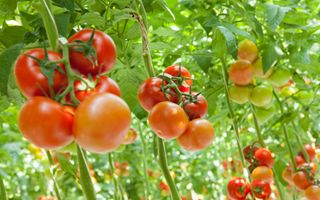(Finance) – What would they be a dish of pasta and a pizza without tomato? Symbol of Italianness and key element of our culinary tradition, appreciated by consumers all over the world, the preserved tomato can, to all intents and purposes, be counted among the protagonists of National Day of Made in Italyestablished by MIMIT to promote the value and quality of our country’s products. A global success, that of Italian red gold, demonstrated by the export numbers which account for over 60% of production. In 2023 exports of all tomato derivatives have recorded a clear growth in value, with a significant increase of 16% compared to the previous year, for a total of approximately 3 billion euros.
“The constant growth in exports leaves no room for doubt: our tomato preserves are appreciated all over the world for the high quality of the raw material grown by our farmers, for the know-how of our entrepreneurs and for the high levels of safety and confirm the absolute excellence of Italian agri-food production”, he comments Giovanni De Angelis, General Director of ANICAV.
L’Italy is the first country producer and exporter of tomato derivatives intended directly for the final consumer: concentrates, peeled, pureed, pulped and cherry tomatoes that we find on supermarket shelves are sustainable from an environmental, ethical-social and health and food safety point of view and are obtained from 100 tomatoes % Italian high quality which must be processed within 24 hours of harvesting. Processing times that are completely incompatible with those that would be necessary to import the raw material from other countries.
For this reason, there is no basis for the continuous attacks aimed at processors, which call into question the origin of the products, confusing consumers and leading them to believe that there are no differences between tomato derivatives and that everything that arrives on our tables is of dubious origin, thus damaging the image of an entire sector.
“The concern of our supply chain – continues De Angelis – is linked to imports, in Europe and therefore in Italy, of ‘semi-finished’ tomatoes coming from non-EU countries that do not apply the same ethical, social and environmental standards as us, thus creating unfair competition for our companies. A country like Italy, which has a strong vocation for exports especially in the agri-food sector, cannot invoke restrictive policies but has the obligation and duty to ask for and apply the principle of subsidiarity. Everyone must have and respect the same rules. This is what we strongly ask of Europe to protect our production system, overcoming demagogic positions that are misleading and harmful to the reputation of an industry and a product, the preserved tomato, which for centuries has been the standard bearer of Made in Italy in the world “.
